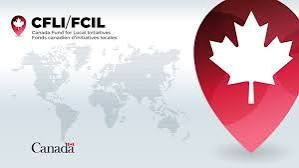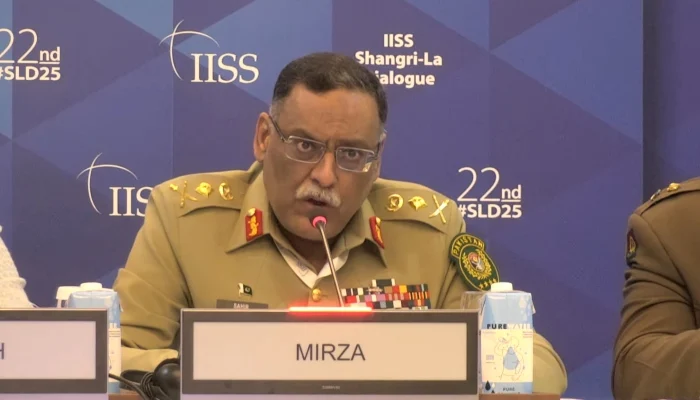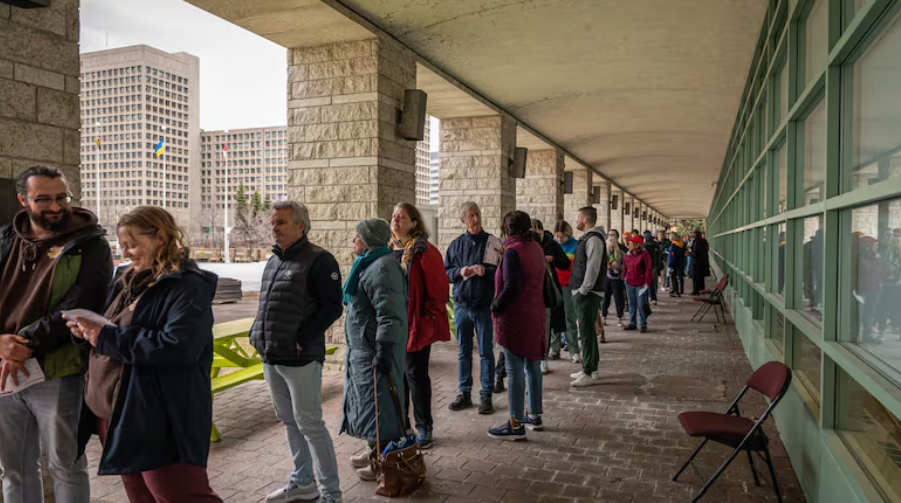
Call for proposals: Canada Fund for Local Initiatives CFLI Pakistan-2025
The High Commission of Canada in Pakistan is pleased to launch its annual call for proposals for the Canada Fund for Local Initiatives (CFLI).
Program description
The CFLI is a program designed to support small-scale, high-impact projects in developing countries, which align with Global Affairs Canada’s thematic priority areas for engagement. The program is directed at projects conceived and designed predominantly by local partners. Projects are selected and approved by the relevant Canadian embassy or high commission. The CFLI also serves to support positive bilateral relations between Canada and recipient countries and their civil societies, by deepening contacts and supporting local endeavours. Canada’s portfolio of CFLI projects in Pakistan contribute to strengthening bilateral relations by supporting local endeavours that have a positive impact on communities.
The average CFLI contribution is $30,000 Canadian Dollars (CAD$100,000 is the maximum allocation amount for a project eligible under CFLI). Consult the currency converter for PKR equivalents. Please note that all contributions are made in Canadian dollars and then converted to PKR.
How to apply
- All projects must be completed between the date of signature of the Contribution Agreement and February 28, 2026.
- The deadline for submission is June 9, 2025, at 23:59 (GMT+5). Applications submitted after this deadline will not be considered. Proposals should be submitted electronically to ISBAD-CFLI-FCIL@international.gc.ca.
- Only those proposals using the designated application form and including the required budget information will be considered.
- For more information on the types of activities and costs that are eligible for CFLI funding, please refer to the list of CFLI approved activities and costs.
- Proposals must be submitted in English or in French.
- Project proposals must explicitly answer all questions in the CFLI project application form, including the required gender-based analysis.
- The proposed project budget should summarize the proposed activities and associated costs and include any cash or in-kind contributions from the proponent or associated partner (s).
- Applications will be assessed on their merits by a selection committee of the High Commission of Canada in Pakistan.
- Due to the large number of applicants, only the successful candidates will be contacted.
- To obtain an application form, please download the CFLI Project Application for Funding Form (PDF 249.15 KB)
- To download and open a PDF form, you need to have Adobe Reader 10 or higher installed.
- Help: Opening PDFs on your computer.
- Request the application form in Microsoft Word format by contacting the FCIL coordinator by e-mail at ISBAD-CFLI-FCIL@international.gc.ca.
- For questions about the application process, please contact ISBAD-CFLI-FCIL@international.gc.ca.
- Project applications are kept on file at missions in accordance with GAC information management policies.
- Projects spanning two fiscal years may be permitted depending on the project objectives and the complexity of activities. Canada’s fiscal year is from April 1 to March 31.
Organizations eligible to apply for CFLI funding
Eligible recipients include those listed below, which are working on local development activities in Pakistan:
- Non-governmental, community, and not-for-profit organizations
- Academic institutions
- International non-governmental organizations
- Intergovernmental, multilateral and regional institutions, organizations and agencies
- Municipal, provincial and national government institutions
- Canadian non-governmental and not-for-profit organizations
The majority of CFLI funding is to be directed toward local civil society organizations (including non-governmental organizations) and other institutions working at the local level. Other entities, such as international, intergovernmental, multilateral and regional organizations may be eligible for funding, provided they are working with local partners that are consistent with CFLI program objectives. Similarly, local, provincial and federal government institutions may be eligible for CFLI funding, provided that their proposals are essentially local in nature. The CFLI is always looking to fund innovative projects that deliver measurable results.
Please note that only organizations with existing valid government registration and functional bank accounts will be considered. For-profit enterprises are not eligible for CFLI funding.
Thematic priorities
All projects must align with at least one of the following CFLI thematic priorities:
- Peace and security, with a focus on conflict prevention and building peace.
- Inclusive governance, including diversity, democracy, human rights, and the rule of law.
- Gender equality and the empowerment of women and girls.
- Environment and climate action focusing on adaptation and mitigation, as well as on water management.
Projects that demonstrate cooperation between communities and various stakeholders (for example, civil society, community youth groups, academia, the private and public sectors, etc.) may be prioritized for selection.
Gender-based analysis
In 2017, Canada adopted its Feminist International Assistance Policy to advance gender equality and the empowerment of women and girls as the most effective way to reduce poverty and build a more inclusive, peaceful and prosperous world. In alignment with this policy, the CFLI project application process now requires a gender-based analysis (GBA). The purpose of this change is to enhance the gender equality outcomes of the CFLI program.
A GBA will require applicants to:
- consider how women, girls, men, and boys are affected differently by the problem their project is aiming to address, ensuring, at the same time, that the project does not cause harm,
- consult women and/or girls in the development of their project proposal, and
- ensure that the views of those women and/or girls inform the project’s design.
Note that consultations can include, but are not limited to, speaking to women and girls from the local community, women and other individuals who work for civil society organizations that have worked in the local community and female and male decision and change makers who have knowledge of the local community. Inadequate completion of a GBA may affect the consideration of your proposal.
Eligible costs
The following project costs are eligible for CFLI funding:
- accounting costs,
- administrative and overhead costs related to the project (overhead should not exceed 15% of total CFLI contribution),
- capital and/or operating expenditures related to the lease and/or purchase and/or building of infrastructure,
- civic education costs,
- conference, events and facility rental expenditures,
- costs of services received by recipients,
- domestic travel expenses, using lowest fares possible but not exceeding full fare economy class,
- environmental assessment costs,
- equipment rental, and/or purchase (only when the purchase is required to meet project objectives, reflects good value for money, and the recipient has a strong care-and-maintenance plan in place for equipment sustainability),
- hospitality costs (excluding alcoholic beverages),
- installation, maintenance, shipping and/or transportation costs, including fuel,
- computers and communication devices,
- lease or rental of vehicles,
- legal costs,
- medical costs,
- miscellaneous expenses integral to the project execution,
- outreach, communication and information dissemination costs,
- public advocacy and promotional costs,
- publishing costs,
- radio and television broadcast fees,
- research-related costs,
- salary costs, including stipends, relating to the project,
- security costs,
- training and capacity building expenditures,
- translation and interpretation fees,
- vehicle and equipment operation, installation and/or maintenance,
- website development and related costs (social media, etc.).
The following costs are not eligible for CFLI funding:
- nuclear technologies and facilities,
- assistance to military or paramilitary organizations,
- gifts,
- luxury goods,
- direct fiscal support to a government,
- seed funding and/or microfinance,
- core funding or recurrent costs of an organization,
- expenses incurred prior to the signing of the contribution agreement, or after it expires.






